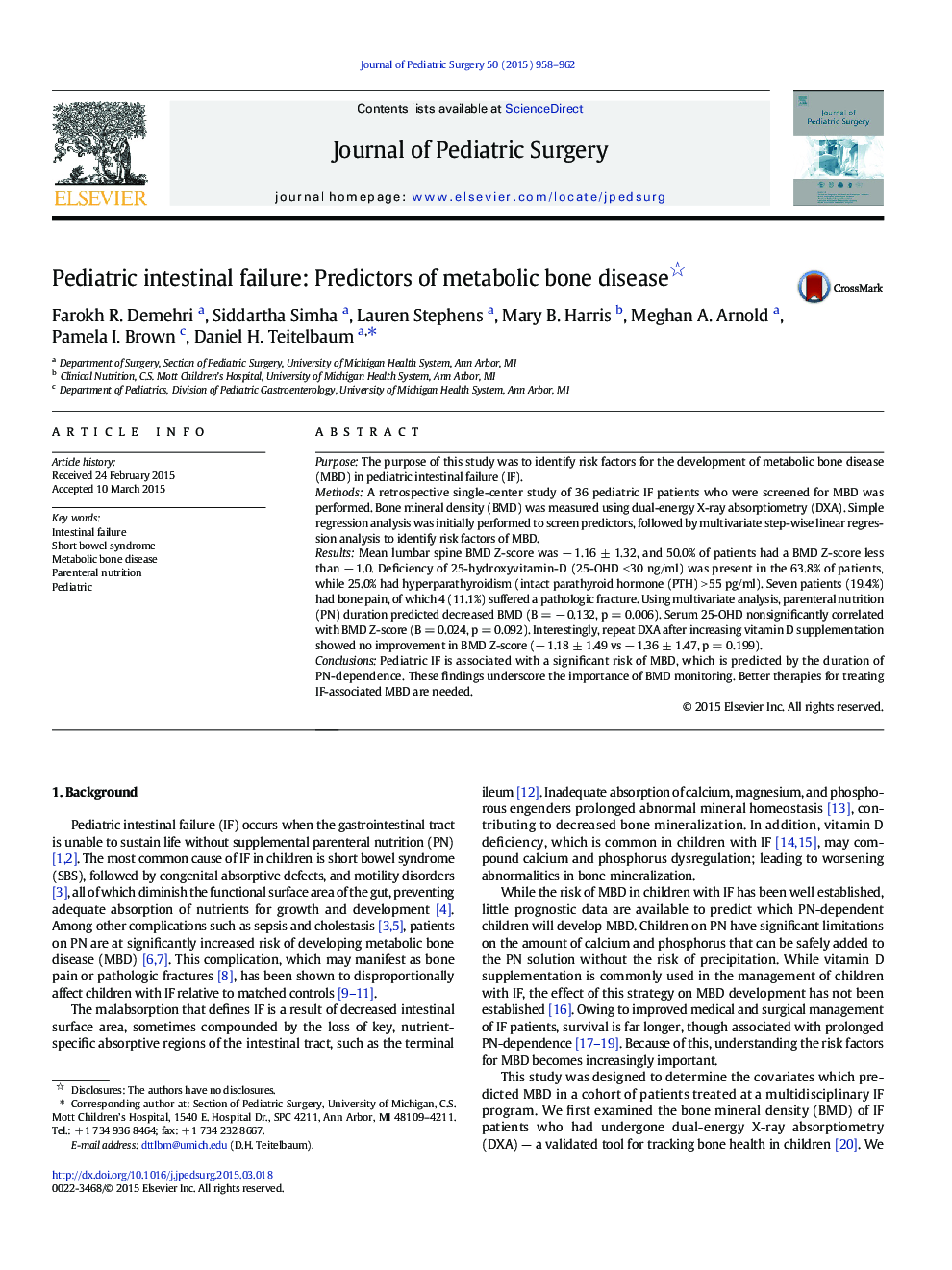| Article ID | Journal | Published Year | Pages | File Type |
|---|---|---|---|---|
| 4155045 | Journal of Pediatric Surgery | 2015 | 5 Pages |
PurposeThe purpose of this study was to identify risk factors for the development of metabolic bone disease (MBD) in pediatric intestinal failure (IF).MethodsA retrospective single-center study of 36 pediatric IF patients who were screened for MBD was performed. Bone mineral density (BMD) was measured using dual-energy X-ray absorptiometry (DXA). Simple regression analysis was initially performed to screen predictors, followed by multivariate step-wise linear regression analysis to identify risk factors of MBD.ResultsMean lumbar spine BMD Z-score was − 1.16 ± 1.32, and 50.0% of patients had a BMD Z-score less than − 1.0. Deficiency of 25-hydroxyvitamin-D (25-OHD < 30 ng/ml) was present in the 63.8% of patients, while 25.0% had hyperparathyroidism (intact parathyroid hormone (PTH) > 55 pg/ml). Seven patients (19.4%) had bone pain, of which 4 (11.1%) suffered a pathologic fracture. Using multivariate analysis, parenteral nutrition (PN) duration predicted decreased BMD (B = − 0.132, p = 0.006). Serum 25-OHD nonsignificantly correlated with BMD Z-score (B = 0.024, p = 0.092). Interestingly, repeat DXA after increasing vitamin D supplementation showed no improvement in BMD Z-score (− 1.18 ± 1.49 vs − 1.36 ± 1.47, p = 0.199).ConclusionsPediatric IF is associated with a significant risk of MBD, which is predicted by the duration of PN-dependence. These findings underscore the importance of BMD monitoring. Better therapies for treating IF-associated MBD are needed.
